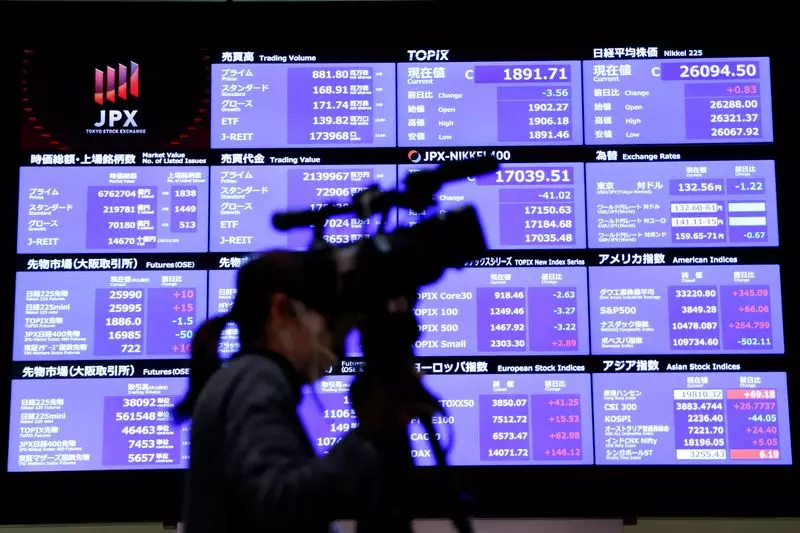Investors around the world are bracing themselves for a busy week ahead as they await key data releases that could have a significant impact on global financial markets. From Asia to Europe to the United States, market participants are closely monitoring various economic indicators that could shape the future trajectory of interest rates, inflation, and monetary policy.
One of the most highly anticipated events of the week is the release of the core personal consumption expenditures (PCE) data in the United States, which is the Federal Reserve’s preferred measure of inflation. Analysts are expecting a modest increase of 0.3% in April, maintaining the annual pace at 2.8%. However, there are downside risks to these forecasts, which could influence the Fed’s decision-making process in the coming months. The possibility of a rate cut in the US is looming, although it may not materialize until later in the year.
Central banks around the world are also closely monitoring inflation data in their respective regions. The European Central Bank (ECB) is expected to cut rates next week, with policymakers already signaling a move towards easing. Similarly, the Bank of Canada may also follow suit with a rate cut next week. Meanwhile, the Bank of Japan (BOJ) is set to hold its policy meeting in June, with speculations on whether it will buck the global trend and hike rates slightly.
The anticipation of lower borrowing costs in many parts of the world has led to positive movements in equities and commodities markets. However, profit-taking activities were observed in some markets last week following a period of strong gains. Key equity indices like the MSCI’s Asia-Pacific shares and Japan’s Nikkei showed mixed performances, reflecting uncertainty and caution among investors.
In the currency markets, attention has been focused on the yen and concerns about potential Japanese intervention to prevent excessive weakening of the currency. The dollar-yen pair has been volatile, with the yen standing at 156.89 against the dollar. Similarly, the euro has been steady against the dollar, but remains below recent highs. Gold prices have experienced fluctuations, while oil prices are stuck near four-month lows amidst worries about demand and potential production cuts by OPEC+.
As the global financial markets gear up for a week of crucial data releases and central bank actions, investors are closely monitoring economic indicators and policy developments that could shape market movements in the coming days. The interplay between inflation, interest rates, monetary policy, and geopolitical factors will likely determine the direction of equities, currencies, commodities, and other asset classes. Amidst uncertainties and risks, market participants are bracing themselves for potential volatility and opportunities in the week ahead.

